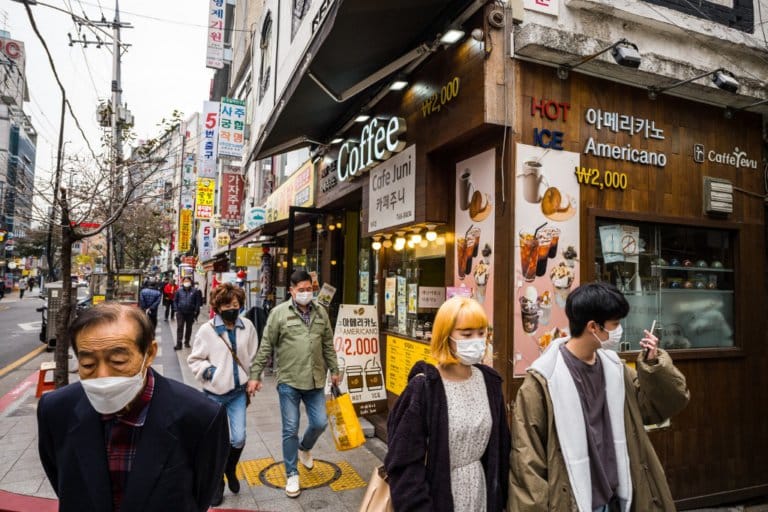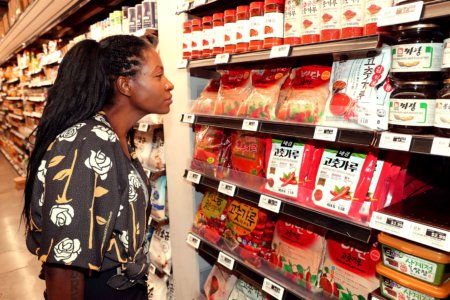
South Korea is a culturally rich country that’s home to today’s trendiest fashion styles and beauty brands, as well as the most popular Korean pop (K-pop) and Korean drama (K-drama) stars. No other country comes close to how South Korea is dominating pop culture today. From our Samsung phones to Netflix recommendations and Spotify playlists, it seems like everyone has something Korean.
But there are customs and traditions that may come off as culture shocks still. If you’re planning to study in South Korea, take note of these to prevent feeling like a creature from another planet and to make the most of your time in what’s probably the hippest country in the world:
1. Technology and transport

Korea’s transport system is highly efficient, allowing those foreign to the country to travel with ease. Source: Jung Yeon-je/AFP
Using South Korea’s public transport is likely to be the world’s most pleasant culture shock. Many have nothing but great things to say about Korea’s public trains, trams, and buses. If they could describe it in a single word, it would be efficient. They provide an effortless, clean and comfortable way to get around the cities.
The locals use navigation apps such as Kakao Map and Naver Map to help them plan their journeys. These apps predict the arrival time of buses and the best part? They’re always punctual.
If you find yourself in a metro station outside a major city and can’t speak the language, there are often English-speaking volunteers who are more than happy to help you find your way. This is a culture shock you would definitely miss when you’re back home.
2. Quiet and respectful people
This may come as one of the biggest culture shocks to most. Compared to Western countries like the US, UK and Europe where individualism is emphasised, Korea’s culture as a whole is focused more on collectivism. That means being respectful and more mindful of other people’s privacy and space.
Similar to Japan, Koreans don’t talk on buses or trains as it is seen as a big disrespect to the personal space of others — this extends to making a phone call.
Another thing to take note of is to not sit in seats reserved for the elderly or pregnant women. Though in some countries it is acceptable for you to take the seat as long as there isn’t any older person or a pregnant woman, this is unacceptable in Korea.
3. Calling people by their first names
It is considered highly disrespectful to call people by their first names in Korea. Social hierarchy is a very big thing to be wary of especially when addressing someone you meet. It’s always a good idea to learn their Korean names as well as to practise saying them correctly.
One way to play it safe is by asking them how they would like to be called the first time you meet. Only then can you comfortably sidestep the name and title rules. Calling Koreans by their first names is only reserved for those well-versed in the culture.
Check out this guide for more tips on Korea’s social hierarchy system.
4. Drinking
Between Korea and Russia, who do you think consumes more alcohol? This is a guaranteed mind blowing fact: South Koreans drink 13.7 shots a week on average, which is more than anyone else in the world.
Drinking is a common way for people to bond in South Korea. Some may find it strange to drink freely with people you just met but it’s very common to go drinking together in hopes of getting to know each other better.
Drinking is embedded in Korean culture and comes with various unspoken rules, such as you must down the first shot, you can’t pour your own drink, and you must turn away when you take your drinks in front of your elders.
Read here for more do’s and don’ts in Korea. Hear a British student’s experience and culture shocks studying abroad in South Korea:










